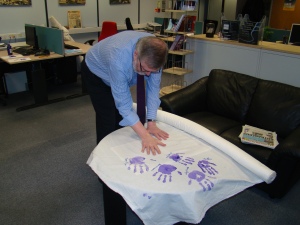Today’s headlines about the primary places ‘crunch’ comes as no surprise here in Lewisham.
The continuing rise in the number of children under five has lead to an unprecedented demand of primary places in our local schools. Many of the children starting this week will be taught in schools where an extra classroom has been added during the summer break just to meet the increase.
The LGA warns that some local areas, including Lewisham, will have to increase places by 20% just to ensure that every child gets a place. In Lewisham we have been dealing with this problem since 2008. When I was re-elected in 2010 I promised to “meet the challenge of rapidly-rising demand for primary places”. This year alone saw us install three permanent and 12 temporary classrooms across schools in the borough, enough for more than 450 children. Since 2008 we have developed 88 new classrooms, the majority of which have been added as temporary increases, known as ‘bulge’ classes.
We estimate that we will need to provide a further 28 new classrooms over the next three years just to keep up with demand. The problem is cost. The Government simply haven’t given us enough money to deal with the issue. Even with grants, we estimate a shortfall of £3.6m to meet the needs for 2014 and an additional £4.5m for 2015. Given the scale of cuts local authorities are facing, these are substantial amounts of money.
Michael Gove’s claim that the government is addressing the issue with free schools is nonsense. Not only are their numbers insignificant, but their locations are simply not in the places where they are most needed. Five of the free primary schools appear to be launching in areas forecast to have surplus places several years from now.
At present, it is Gove’s policies that are preventing local authorities from tackling the problem effectively. The process of creating much-needed school places is being impaired by a ‘one-size-fits-all’ approach and in some cases by the presumption in favour of free schools and academies.
To make matters worse, the Department for Education has used four different methods to allocate funding for school places since 2007 and we are still in the dark as to how it will be allocated in future.
What we need from Michael Gove is not just money, but a loosening of his rules and regulations about free schools and academies as well as some certainty about future funding. Somehow, I doubt he will see it that way.

